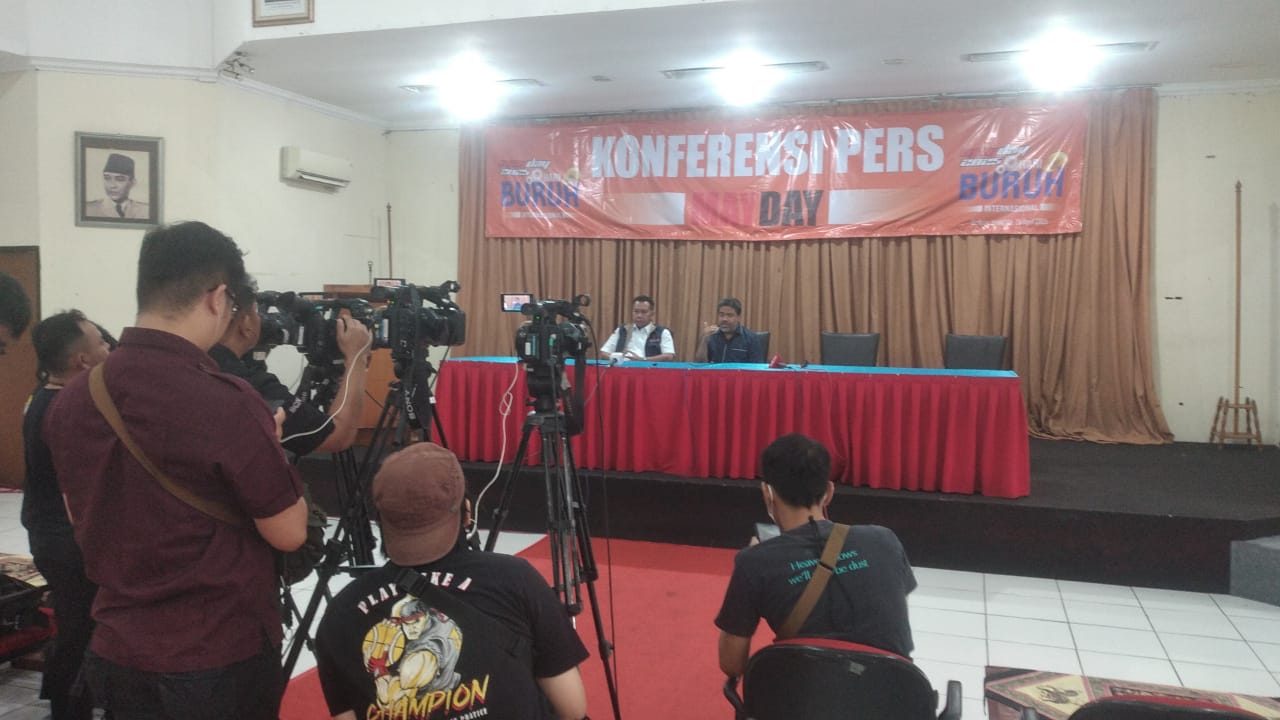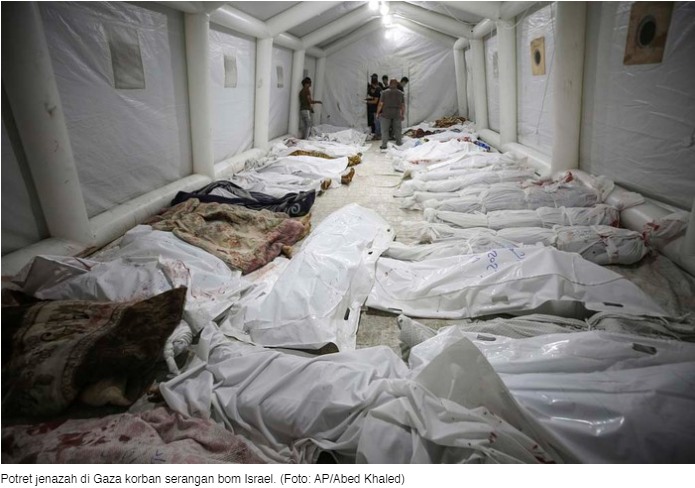
KN. The US abruptly halted a planned shipment of American-made ammunition to Israel, Axios reported. The White House, which has become increasingly more critical of Israel’s conduct in Gaza, has not explained the alleged interruption.
Two Israeli officials told the outlet that the delivery had been inexplicably stopped last week, leaving the Israeli government “scrambling to understand why the shipment was held.”

The White House declined to comment when asked by Axios, while the Pentagon, US State Department and the Israeli prime minister’s office refused to respond to questions.
Biden has declared that an Israeli invasion of the civilian-crowded city of Rafah would be a “red line,” and publicly rebuked Netanyahu over “indiscriminate” bombing of Gaza.
The State Department has also sanctioned Israeli settlers in the West Bank, while the US abstained from a UN Security Council vote in March allowing a measure demanding an immediate ceasefire between Israel and Hamas to pass.
Despite the shift in rhetoric, the Biden administration has also kept weapons and ammunition flowing to Israel, reportedly approving more than 100 arms deliveries to the Jewish state since October 7.
The contents of these packages are generally not revealed to the public unless their value exceeds $250 million, and only two have passed this threshold. These large packages were approved last month and included more than 1,800 MK84 2,000-pound bombs and 500 MK82 500-pound bombs, as well as over 1,000 small-diameter munitions.
The cabinet of Prime Minister Benjamin Netanyahu has unanimously voted to halt the operations in Israel of Qatar-based broadcaster Al Jazeera, the government has said in a statement.
Israel has long accused Al Jazeera, which remains one of the few international news channels to have correspondents on the ground in Gaza, of showing bias against it and of cooperating with Hamas militants. The broadcaster has been denying the accusations.
Netanyahu took to X (formerly Twitter) on Sunday to announce the development, writing that “the government headed by me unanimously decided: the incitement channel Al Jazeera will be closed in Israel.”
Shortly after that, Israel’s Communications Minister Shlomo Karhi said that he had signed the orders to restrict the broadcaster’s operations, which would be effective immediately.
The hardware “used to deliver the channel’s content,” including editing and routing equipment, cameras, laptops and some mobile phones, is going to be seized, Karhi wrote on X.
The Israeli government’s decision is in line with a law passed by the country’s parliament, the Knesset, in April, which allows for temporary closure in Israel of foreign broadcasters deemed a threat to national security during the conflict in Gaza. According to the legislation, the ban requires recertification every 45 days.
The head of Al Jazeera in Israel and the Palestinian territories, Walid Omary, insisted that the move by Netanyahu’s cabinet was “dangerous” and motivated solely by political considerations. The broadcaster’s legal team is preparing a response to the ban, Omary told Reuters.
Al Jazeera’s correspondent in Gaza, Hani Mahmoud, said that Palestinians are perceiving the shutdown of the news channel as “a desperate move to prevent fair coverage of what’s going on on the ground” in the enclave.
Al Jazeera has “documented the atrocities” and “acts that go against international human rights law,” Mahmoud claimed, adding that this was “something that did not really sit well with the Israeli government.”
Hamas has accepted a ceasefire proposal put forward by Egyptian and Qatari mediators, a spokesman for the group told Al Jazeera on Monday. The announcement came shortly after Israel ordered the evacuation of the city of Rafah ahead of a long-planned assault.
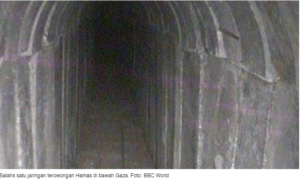
Hamas leader Ismail Haniyeh held phone calls with Qatari Prime Minister Sheikh Mohammed bin Abdul Rahman Al Thani and Egyptian Intelligence Minister Abbas Kamel, informing them “of the Hamas movement’s approval of their proposal regarding the ceasefire agreement,” the group said in a statement to Al Jazeera.
The details of the proposal have not yet been made public. Hamas has previously demanded that any ceasefire be permanent and include the withdrawal of all Israeli troops from the besieged Palestinian enclave. Israeli Prime Minister Benjamin Netanyahu has refused to issue these guarantees, warning last week that Israel will not allow Hamas to remain in power in Gaza, and will invade Rafah with or without a ceasefire deal.
Netanyahu has, however, said that Israel is ready for a temporary pause in fighting to allow the exchange of Israeli hostages for Palestinian prisoners.
The Israeli PM has threatened for several months to launch a ground invasion of Rafah, a city in southern Gaza currently home to around 1.4 million displaced Palestinians from other parts of the territory. Despite condemnation from the US, EU, and scores of other countries, the Israeli military ordered civilians to leave Rafah on Monday, warning that it would strike the city with “extreme force” shortly thereafter.
It is not clear whether the threat of invasion influenced Hamas’ decision to accept the ceasefire proposal. Despite Netanyahu’s insistence on entering Rafah, other Israeli officials have suggested that Hamas could avoid an invasion by agreeing to Israel’s temporary truce.
It is also unclear whether the deal put forward by Egypt and Qatar has Israel’s support. An unnamed Israeli official told Reuters that Hamas agreed to a “softened” version of West Jerusalem’s initial offer, which included ‘far-reaching” conclusions that Israel would not support.
The Belgian government is “working on further sanctions against Israel,” Deputy Prime Minister Petra De Sutter said. Brussels has already sanctioned Israeli settlers, and plans to cut trade ties with the Jewish state over the war in Gaza.
In a post on X (formerly Twitter), De Sutter said that Israel’s planned invasion of Rafah – a city in southern Gaza where around 1.4 million Palestinian refugees have sought shelter – would “lead to [a] massacre.”
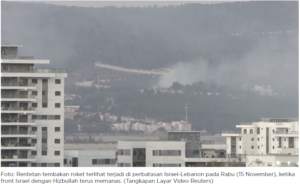
Israel ordered the evacuation of Rafah on Monday, with the Israel Defense Forces (IDF) warning that it would strike the city with “extreme force” shortly thereafter.
“I met with Palestinian Minister of Foreign Affairs Dr. Riad Malki. We discussed how Belgium can help to end the atrocities,” De Sutter said in a follow-up post, adding that “Belgium is working on further sanctions against Israel.”
Belgium and the EU’s 26 other member states imposed sanctions last month on four individuals and two organizations involved in the construction of illegal Jewish settlements on Palestinian land in the West Bank. The people and entities sanctioned are responsible for property theft and “serious human rights abuses against Palestinians,” according to the European Council.
Belgium currently holds the rotating presidency of the European Council. Speaking to Belgian newspaper Het Laatste Nieuws, Prime Minister Alexander De Croo said that he would use the presidency to push the European Commission to review its trade agreement with Israel, and if necessary, gather a group of like-minded European leaders willing to cut ties with the country.
“Can we now simply continue with Israel as a trading partner? I do not think so,” he told the newspaper.
De Croo rejected calls from the Belgian opposition to sanction Israel two months ago. “But in the meantime there have been 35,000 deaths, including 10,000 children,” he explained. “In ten years’ time people are going to say, ‘You watched and took no action.”
The EU is Israel’s largest trading partner, with 32% of Israel’s imports originating from the EU and 25% of its exports sent to the bloc, according to data from 2022. Belgium is Israel’s fourth biggest trading partner within the EU, largely due to the diamond trade.
Israel has urged Palestinians to evacuate parts of Rafah, warning that it will take “extreme” military action against Hamas militants in the southern Gaza city. The Jewish state has been preparing for an incursion in Rafah, which is currently home to over a million people, despite warnings against doing so from the US, EU, and UN.
The Israeli military issued “an urgent appeal to all residents and displaced people” living in several neighborhoods of Rafah to “evacuate immediately,” according to Avichay Adraee, the head of the Israel Defense Force’s Arab media division.
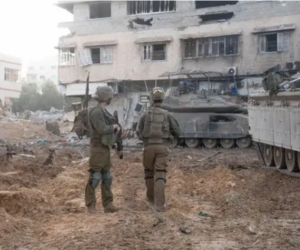
“The IDF will act with extreme force against terrorist organizations” in the area, Adraee said in a post on X (formerly Twitter). There was no clarification on when the military action might start.
A senior Hamas official has told Reuters that the evacuation order was a “dangerous escalation” that would have consequences.
The evacuation call comes a day after Israel closed the main border crossing used to deliver humanitarian aid into Gaza. The closure came in response to a Hamas rocket attack that left three soldiers dead and 11 wounded on Sunday.
West Jerusalem claims Rafah is the last significant stronghold of Hamas, and that potentially dozens of Israeli hostages may be held there. Victory over the militant group is impossible without taking the city, the Israeli government insists.
According to the UN agency for Palestinian refugees, Rafah is currently home to 1.4 million Palestinians who have fled the northern parts of the enclave since October. The international community has sounded the alarm over the number of civilian casualties that a military operation in the city could cause.
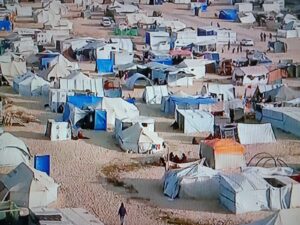
Top EU diplomat Josep Borrell has described the Rafah evacuation order as “unacceptable” and demanded that Israel denounce its ground offensive plan.
The Rafah plan has opened a rift between Israel and its staunchest ally, the US. The administration of President Joe Biden previously declared that an Israeli invasion of the city would be a “red line,” a statement that was dismissed by Prime Minister Benyamin Netanyahu. Washington has been under increasing pressure from the UN, pro-Palestinian protesters, and human rights organizations to stop arming Israel.






